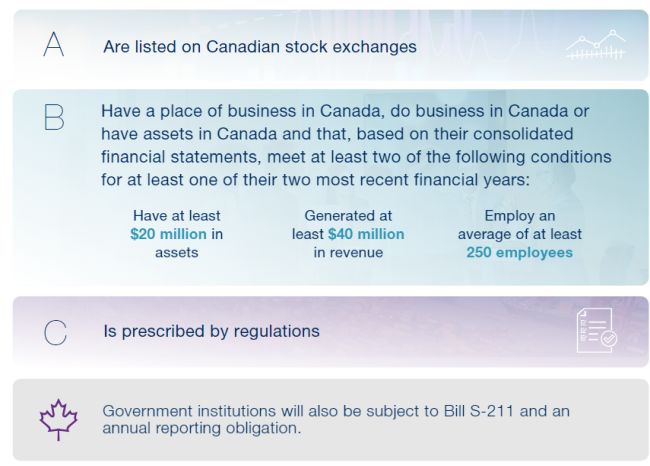Canada's Fighting Against Forced Labour and Child Labour in Supply Chains Act, formerly known as Bill S-211, is the country's new legislation aimed at fighting modern slavery. It requires annual reporting on the steps taken to prevent and reduce the risk of forced and child labour being used in goods imported into Canada, as well as in the production of goods, whether here or elsewhere.
On May 11, 2023, the Fighting Against Forced Labour and Child Labour in Supply Chains Act (Bill S-211) received Royal Assent and became law. The new legislation will come into force on Jan. 1, 2024. The first annual reports to the federal government on forced and child labour will be required from business entities by May 31, 2024. However, the government has publicly signalled that it may delay some or all of the new requirements of Bill S-211. Currently, it remains unclear whether the government intends to delay the new reporting requirements, changes to the import ban, or both.
Bill S-211 imposes a new annual reporting obligation on corporations, trusts, partnerships and other unincorporated organizations (generally, "businesses") that produce, sell or distribute goods in Canada or elsewhere, import foreign goods into Canada or control an entity that is engaged in such activities, provided that such businesses fit into one of the following categories:

In addition to increased transparency and reporting, Bill S-211 amended the Canadian Customs Tariff, extending the existing ban on importing goods produced with forced labour to cover child labour as well. This is expected to heighten the Canadian government's focus on the importation of goods produced by forced or child labour, which is likely to make enforcement of the import ban – originally adopted as part of Canada's NAFTA renegotiations – a higher government priority. The Canada Border Services Agency (CBSA) may also make use of information filed under the Bill S-211 reporting requirements to inform enforcement of the import ban.
BLG can guide businesses through a supply chain audit or human rights impact assessment, review internal compliance policies and standard operating procedures, and provide advice on supply chain ethics to assist companies with their Bill S-211 compliance.
The content of this article is intended to provide a general guide to the subject matter. Specialist advice should be sought about your specific circumstances.

